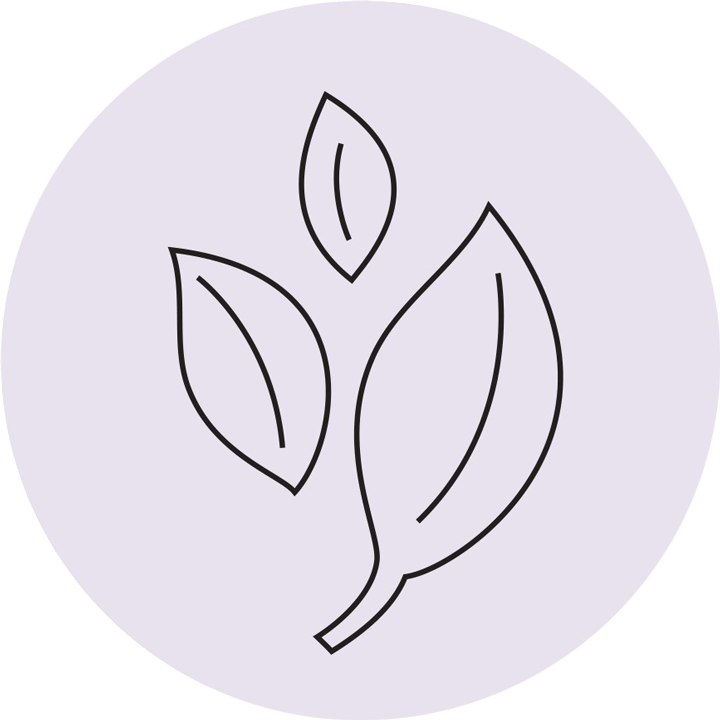At the heart of production: environmental protection
The Group’s environmental policy aims to roll out best practices in sustainable production so as to limit the direct impact of the Group’s business activities on the environment, and to preserve biodiversity and resources: energy efficiency, use of renewable energy, optimisation of water withdrawals and reuse, reduction of waste generation etc. In 2024, L’Oréal continued to prioritise programmes designed to reduce its environmental footprint(1).
SINCE 2019
-51% of CO2 emissions (Scopes 1 & 2, based on GHG Protocol in absolute terms)

76% of waste on industrial sites has been reused or recycled (material recovery)
At the end of 2024, 97% of the energy consumed by the Group’s sites was from renewable sources(2). 53% of the water used in the Group’s manufacturing processes is recycled and reused.
L’Oréal’s 25-year+ commitment to environmental leadership has been recognised since 2016 with an "AAA" score from CDP(3), its highest possible rating. L’Oréal is the only company in the world, out of more than 24,000 companies assessed, to score AAA for the ninth consecutive year, in recognition of its commitment and results in addressing climate change, protecting forests and safeguarding water resources.
A responsible, omnichannel supply chain strategy
L'Oréal's supply chain teams aim to satisfy all its customers and consumers, in particular by optimising the delivery of more than seven billion products and effectively managing lead times and costs. The teams’ responsiveness in 2024 supported the Group's growth in a volatile market. Managing a portfolio of many different product categories and a unique diversity of channels, L'Oréal optimises information and physical goods flows, gaining agility to respond to fluctuations in market conditions in real time.
Digitalisation and data management are crucial, particularly for the retail trade and L'Oréal's directly-managed stores, as they improve understanding of the purchasing journey. The Group’s supply chain network of more than 158 hubs, currently being transformed into automated, data-driven fulfilment centres(4), ensures agile coverage of requirements, an expanded range of services (personalisation, box preparation, bespoke delivery) and enhanced traceability. One example is the new intelligent fulfilment centre in Suzhou, China, inaugurated in 2024.
Lastly, L'Oréal is also working with its carriers to develop low- carbon multi-modal solutions to reduce its environmental footprint.
Global economic performance at the service of the brands and the commercial entities
In a climate of short and long-term global tension, the Operations teams play a key economic role for all brands and markets, which has an impact on the overall cost of products and their distribution.
Economic optimisation efforts led by Operations involve tracking the total landed cost, i.e., the final full cost of a product, which includes the cost of packaging and raw materials, the value added by the plants and all supply chain costs.
COMMITMENT TO INVEST IN OPERATIONS
(Production and supply chain commitments in € millions)

This graph represents the commitment to invest in operations (Production and supply chain commitments in € millions).
- 2022: 409
- 2023: 390
- 2024: 377
PRODUCTION AND NET SALES OF THE OPERATIONAL DIVISIONS BY GEOGRAPHIC ZONE IN 2024: PRODUCTION CLOSE TO ITS MARKETS

This graph illustrates the operating divisions' production and sales by geographic zone in 2024, demonstrating that production is close to its markets.
Production
- Europe: 50.0%
- North America: 17.6%
- North Asia: 8.8%
- SAPMENA-SSA: 11.7%
- Latin America: 11.9%
Sales
- Europe: 32.7%
- North America: 27.1%
- North Asia: 23.7%
- SAPMENA-SSA: 8.9%
- Latin America: 7.6%
(1) Continuation of renewable energy projects around the world (e.g., start-up of two new treatment plants in France).
(2) Operated sites, excluding safety and security equipment.
(3) CDP is an independent NGO which offers a global system for the measurement and publication of environmental information and which assesses the strategy, close involvement and results obtained by companies in the fight against climate change, sustainable water management and forest protection.
(4) Distribution centres specially adapted for e-commerce distribution, where packages sent directly to consumers are prepared.
